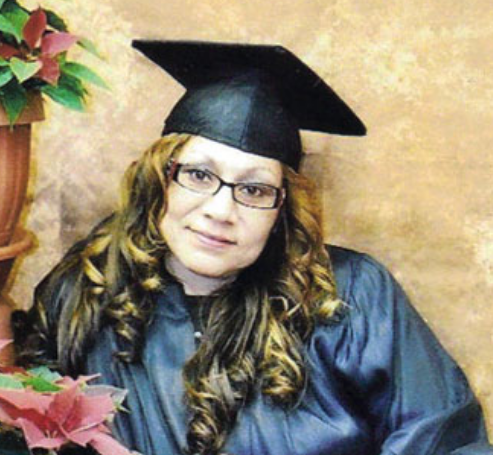
- Details
- By Native News Online Staff
WASHINGTON — Overnight outgoing President Donald Trump issued a pardon to his former aide Steven Bannon. Additionally, Trump issued dozens of other pardons to individuals with lower public profiles. Among the list of individuals pardoned overnight by Trump is LaVonne Roach, a tribal citizen of the Cheyenne River Sioux Tribe, who has been incarcerated since 1997 for a non-violent drug charge.
Roach, 56, who was convicted of a Conspiracy to Distribute Methamphetamine charge in 1997 by a South Dakota jury and sentenced to 30 years in prison. Roach admits she was a drug addict and dealer, who became romantically involved with a drug kingpin.
She was scheduled to be released on July 14, 2023.
“I am responsible for not only hurting my family but my community with the poison I distributed,” Roach told Truthout in Dec. 2016.
Roach has been considered a model inmate. While incarcerated, Roach completed a non-residential drug program. Additionally, she completed two-year paralegal courses and has taught GED courses to other inmates.
Since being incarcerated, Roach’s father and mother passed away. She has three children and several grandchildren.
More Stories Like This
Native News Weekly (August 25, 2024): D.C. BriefsUS Presidents in Their Own Words Concerning American Indians
Oral History Project Announces 14th Stop in Portland, Oregon: NABS Continues to Gather Crucial Stories Across Indian Country
Governor Newsom proclaims Native American Heritage Month
Hundreds to Join Second Annual Native American Heritage Month Parade in Sacramento
Help us tell the stories that could save Native languages and food traditions
At a critical moment for Indian Country, Native News Online is embarking on our most ambitious reporting project yet: "Cultivating Culture," a three-year investigation into two forces shaping Native community survival—food sovereignty and language revitalization.
The devastating impact of COVID-19 accelerated the loss of Native elders and with them, irreplaceable cultural knowledge. Yet across tribal communities, innovative leaders are fighting back, reclaiming traditional food systems and breathing new life into Native languages. These aren't just cultural preservation efforts—they're powerful pathways to community health, healing, and resilience.
Our dedicated reporting team will spend three years documenting these stories through on-the-ground reporting in 18 tribal communities, producing over 200 in-depth stories, 18 podcast episodes, and multimedia content that amplifies Indigenous voices. We'll show policymakers, funders, and allies how cultural restoration directly impacts physical and mental wellness while celebrating successful models of sovereignty and self-determination.
This isn't corporate media parachuting into Indian Country for a quick story. This is sustained, relationship-based journalism by Native reporters who understand these communities. It's "Warrior Journalism"—fearless reporting that serves the 5.5 million readers who depend on us for news that mainstream media often ignores.
We need your help right now. While we've secured partial funding, we're still $450,000 short of our three-year budget. Our immediate goal is $25,000 this month to keep this critical work moving forward—funding reporter salaries, travel to remote communities, photography, and the deep reporting these stories deserve.
Every dollar directly supports Indigenous journalists telling Indigenous stories. Whether it's $5 or $50, your contribution ensures these vital narratives of resilience, innovation, and hope don't disappear into silence.
 The stakes couldn't be higher. Native languages are being lost at an alarming rate. Food insecurity plagues many tribal communities. But solutions are emerging, and these stories need to be told.
The stakes couldn't be higher. Native languages are being lost at an alarming rate. Food insecurity plagues many tribal communities. But solutions are emerging, and these stories need to be told.
Support independent Native journalism. Fund the stories that matter.
Levi Rickert (Potawatomi), Editor & Publisher

